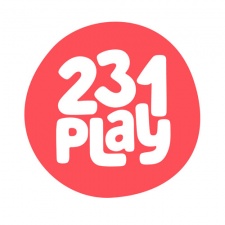Matthias Hoechsmann has been involved with the mobile games industry for for a significant chunk of his professional life.
Since dropping out of university to make games with his brother, Thomas, under the name Gamedoctors, he's never looked back.
First, the pair launched Zombie Smash, which went to number 1 in the App Store's worldwide top grossing charts - albeit back when there were only 400,000 apps on Apple's burgeoning marketplace, and when games were sold for $0.99.
“I wish at that time it was like it is now,” Hoechsmann laughs.
But it was enough to impress Zynga, who acquired Gamedoctors in 2011. Between then and 2013, the Hoechsmann brothers worked as studio directors at Zynga's Bielefeld, Germany office.
Back in the game
And now, after three years of time out and exploring other areas, they are ready to start out independently in the world of mobile gaming once again.
Based in Berlin, the studio - named 231 Play - was launched with the brief of adapting broad-appeal analogue games for mobile.
In an industry increasingly converging towards midcore, 231 Play is going super casual. This is precisely why Matthias Hoechsmann believes that now is the perfect time.
History has proven that casual games cannot compete monetisation-wise with midcore, he admits, but “they are very accessible, they are time-tested - people have been playing word games forever - and they will in the future.”
There is a base of players who currently don't have many options, because it's not where the industry's going.Matthias Hoechsmann
“There is a base of players who currently don't have many options, because it's not where the industry's going,” he adds.
Against the tide
The idea that casual gamers are somehow under-served on the App Store may sound absurd to some, but Hoechsmann's point is that while there are countless match-3 games, there are comparably few word games, memory games - those that dominate in the analogue realm.
In short, potential casual players are being let down by a lack of creativity in conversion to the mobile space. This is where 231 Play steps in.
“It's our mission to bring casual games to mass audiences that are traditionally playing a lot, but not really on mobile devices,” explains Hoechsmann.
Of course there's a chance it won't work, but that's why 231 Play is starting out small with only seven full-time staffers. “We're a small company, so we can do this kind of thing,” he considers.
“We plan to scale it up based on the performance of our first title, then we plan to follow up with two [more games] next year and keep up that pace.”
Keeping it simple
That first game, Peppy Pairs Paradise, is a memory-testing Pairs game due this summer. It's an incredibly simple concept, but that's exactly the philosophy of 231 Play.
“These games, on first sight, don't seem suitable for mobile,” admits Hoechsmann. “It's an effort to play, it's not really fun.”

“But that's just on the surface. Finding two things that are the same is as simple as it gets; there's just no barrier to entry there.”
Atop the simple gameplay that forms the basis of Peppy Pairs Paradise, 231 Play is keen to layer a number of social and visual features that elevate the experience.
There's not much to the game itself - it's about how you're rewarded, the inspiration to progress.Matthias Hoechsmann
For instance, taking a cartoon-inspired aesthetic, every item you match will be an anthropomorphic creature of some kind.
“Just like a match-3 game, there's not much to the game itself,” states Hoechsmann. “It's about how you're rewarded, the inspiration to progress.”
Social glue
He adds that we can expect to see strong social elements in 231 Play's output, citing Zynga's Crazy Cake Swap - specifically, the use of you and your friends' faces in-game - as an example of creative social implementation that aids retention.
“I'd like to see more of that,” he finishes.
The idea at the heart of 231 Play is certainly an interesting one, and where there is a trend - in this case, midcore and PvP - there is always a counter-trend.
But whether or not 231 Play can gain any traction with its super-casual approach largely relies on the performance of Peppy Pairs Paradise.
Is there a group of marginalised casual gamers crying out for games like those 231 Play is creating, or do the industry's shifting priorities reflect a lack of demand in that space? Hoechsmann and his team believes (and hopes) that there is.





















